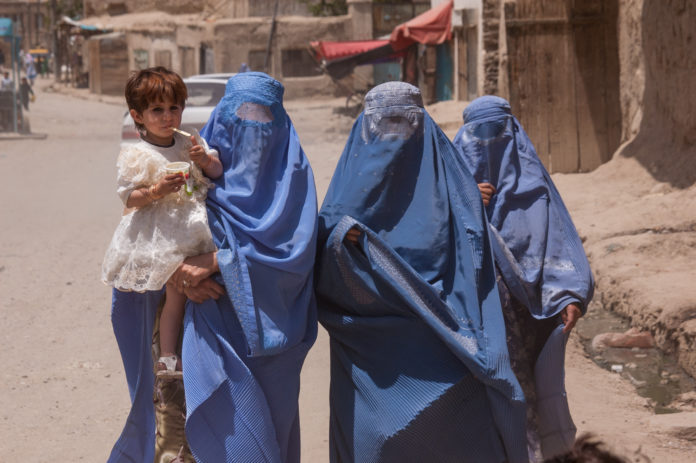Afghanistan’s Ministry of Economy has ordered domestic and foreign NGOs to suspend the duties of female employees until further notice because they are “not observing proper hijab.”
A letter published today, confirmed by Economy Ministry spokesperson Abdulrahman Habib, said that female employees were not allowed to work until further notice because some had not adhered to Islamic dresscode for women.
The letter threatened to cancel the license of any organisation that did not swiftly comply.
It said: “As you are aware, the Ministry of Economics on behalf of the Islamic Emirate of Afghanistan has the responsibility to oversee NGOs in Afghanistan. We want to inform you that we have received numerous complaints that the female employees of different organisations are not observing Islamic codes, hijabs and all the necessary requirements have not been followed.
“That is why the Ministry of Economics has taken this decision to request all NGOs – be they national or international – to immediately cease the employment of female workers until further notice. There will be serious repercussions for NGOs which do not follow the guidance – they will lose their licence and will not be able to continue their activities in Afghanistan.”
It was not immediately clear how the order would affect United Nations agencies, which have a large presence in Afghanistan delivering services amid the country’s humanitarian crisis.
The United Nations often contracts with NGOs registered in Afghanistan to carry out its humanitarian work, and female workers are critical to ensuring women can access aid.
Subscribe to our newsletter and stay updated on the latest news and updates from around the Muslim world!
When asked whether the rules included U.N. agencies, Habib said the letter applied to organisations under Afghanistan’s coordinating body for humanitarian organisations, known as ACBAR. That body does not include the United Nations, but includes over 180 local and international NGOs.
The Charge D’Affaires for Norway, which funds aid in Afghanistan, condemned the move.
“The ban on female employees in NGOs must be reversed immediately,” Paul Klouman Bekken tweeted. “In addition to being a blow to women´s rights, this move will exacerbate the humanitarian crisis and hurt the most vulnerable Afghans.”
Amnesty International said on Twitter that the latest order by the “Taliban Ministry of Economy suspending all female employees of national and international NGOs in Afghanistan is yet another deplorable attempt to erase women from the political, social and economic spaces.”
The move comes days after the Islamic Emirate banned women from university education until further notice.
A letter by the cabinet of ministers, confirmed by a spokesperson for the higher education ministry on Tuesday, instructed Afghan public and private universities to suspend access to female students immediately.
Since coming to power in August 2021 the Islamic Emirate has been gradually implementing laws which they say conform to Islam’s rulings on gender issues.
For example, women are barred from going on longer distance journeys without a mahram.
Teenage girls have still not returned to school in most of the country, despite promises to allow them to do so.
While some women still work in sectors such as healthcare and education, most were told not to go to work after the Islamic Emirate was established.
And in May a decree was passed ordering women to wear the Islamic face veil in public, although some in urban areas are still failing to comply.
Western diplomats have indicated to the authorities that resuming development funding for a country in deep economic crisis “depends on the treatment of women improving.”























